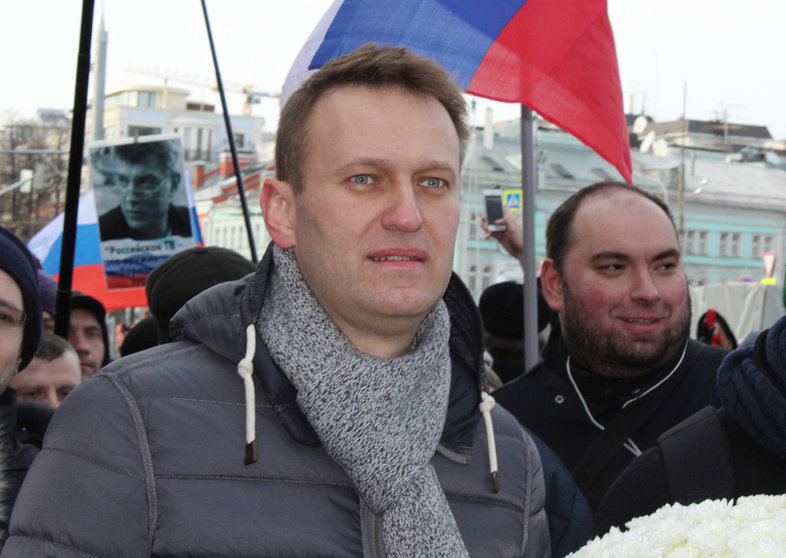Russian hospital where opposition activist Alexei Navalny is being treated in a comatose condition said on Friday that while there is no evidence of a possible poisoning, it would be too dangerous to evacuate him to Germany for treatment.
Navalny's condition is unstable. "We are all fighting for the life of our patient," said the head doctor at the hospital in the Siberian city of Omsk, Alexander Murakhovsky.
Murakhovsky explained that Navalny cannot be transported due to concerns that it could be too dangerous for his health. The hospital's head doctor said the most likely cause of Navalny's condition was a disorder pertaining to his metabolism of carbohydrates, according to comments carried by state news agency TASS.
"Today we have some working diagnoses. The main one is ... a metabolic disorder," Murakhovsky said, adding that Navalny's condition "may be caused by a sudden drop of blood sugar levels."
Navalny, 44, has arguably been the fiercest domestic opponent of President Vladimir Putin over the past decade, having organized several series over protests against the long-time Russian leader, whom Navalny accuses of perpetuating widespread corruption.
Navalny's spokesperson, Kira Yarmysh, has said that Navalny appeared to have been poisoned with tea that he had drunk at an airport cafe before boarding an airliner in the Siberian city of Tomsk.
Navalny, who had been in Siberia to support opposition candidates for local elections, fell ill while on the flight from Tomsk back home to Moscow, and the plane made an emergency landing in Omsk.
Navalny was brought by ambulance to the Omsk hospital, where doctors initially indicated that it appeared he had been poisoned with a strong hallucinogen, Yarmysh said in a statement on Twitter.
The director of Navalny's Anti-Corruption Foundation, Ivan Zhdanov, told reporters on Friday that hospital staff had told him that a poison was detected and that staff were wearing hazmat suits as a precaution while tending to Navalny.
A team of German doctors
Zhdanov said that a team of German doctors who had arrived to treat Navalny were not being allowed access to the patient.
However, a hospital representative said on Friday that there was no evidence that Navalny had been poisoned, according to comments carried by Russian state media.
"No poisons or traces of poison have been found in his system. I suppose a diagnosis of poisoning is still at the back of our minds. But we do not think that the patient has been poisoned," deputy chief doctor Anatoly Kalinichenko said, state news agency TASS reported.
Yarmysh alleged that Russian authorities seemed to want to keep Navalny at the hospital for at least a couple of days to make sure that potential traces of poisoning would be out of his system.
"The ban on transporting Navalny is needed only to delay and wait until the poison in his body can no longer be traced. However, every hour of delay creates a critical threat to his life," Yarmysh said in a statement.
Merkel demands clarification
German Chancellor Angela Merkel has demanded rapid clarification from Russia as to the circumstances of Navalny's ailment.
Yarmysh has implicated the Russian state in the poisoning allegations, saying that even if the Kremlin were not directly culpable it was still responsible for Navalny's welfare.
The Kremlin's spokesperson, Dmitry Peskov, had suggested on Thursday that Navalny could be evacuated for further treatment abroad, saying the Kremlin or the Health Ministry would promptly consider such a request.
"We certainly wish a speedy recovery to him, like to any other citizen of our country," Peskov said in comments carried by state media.










